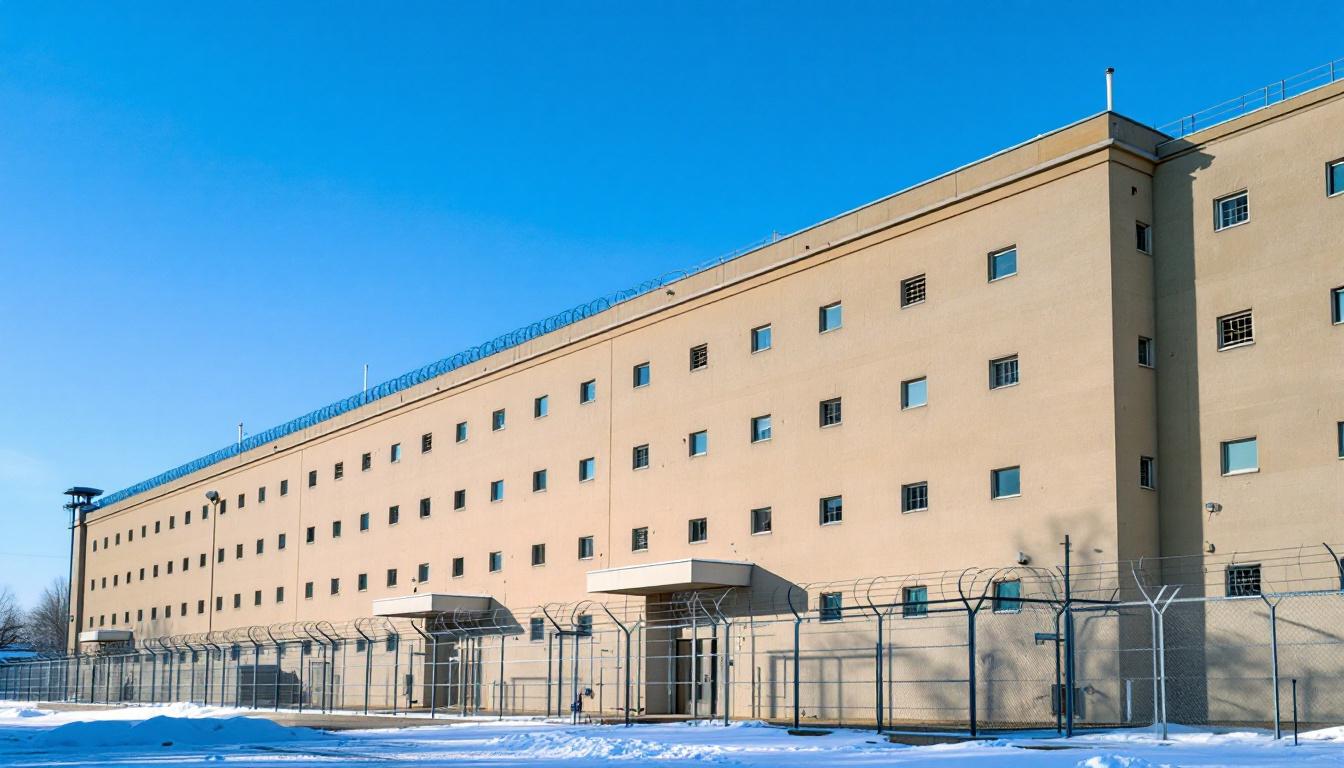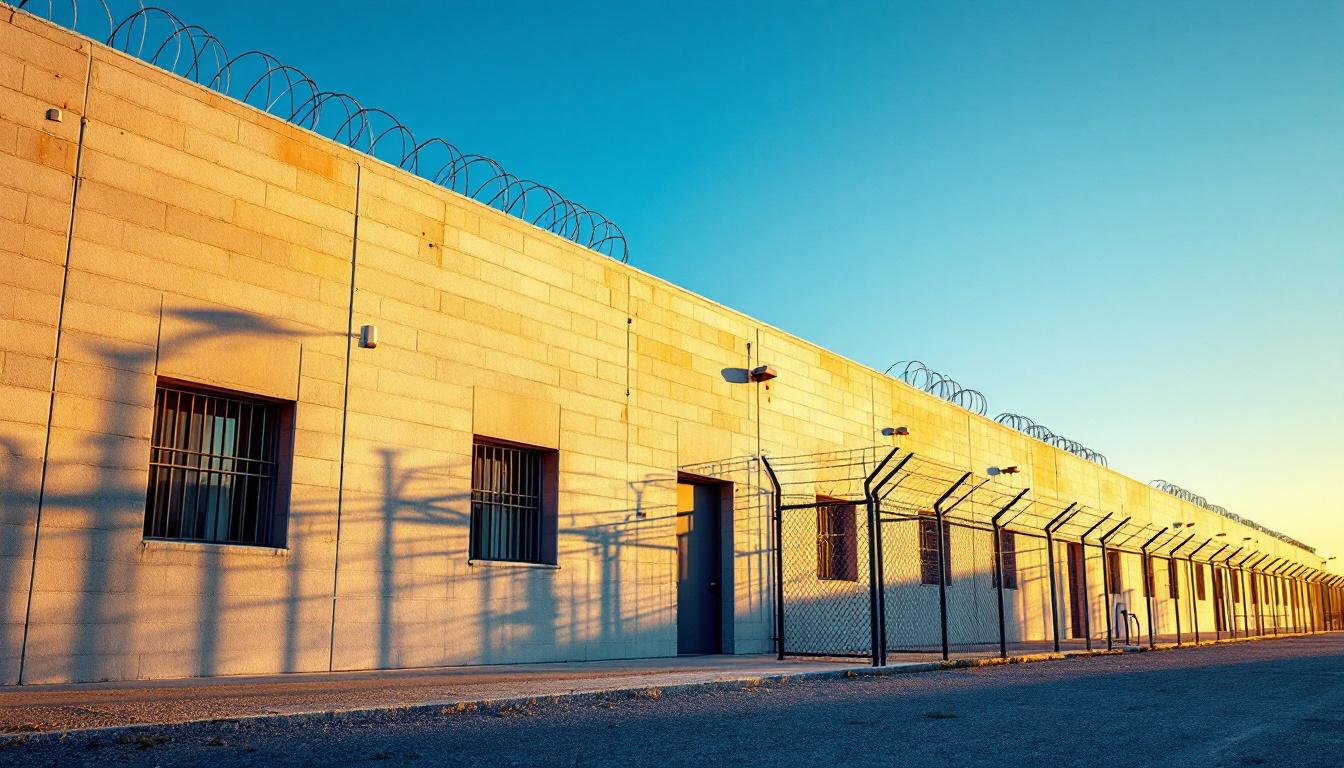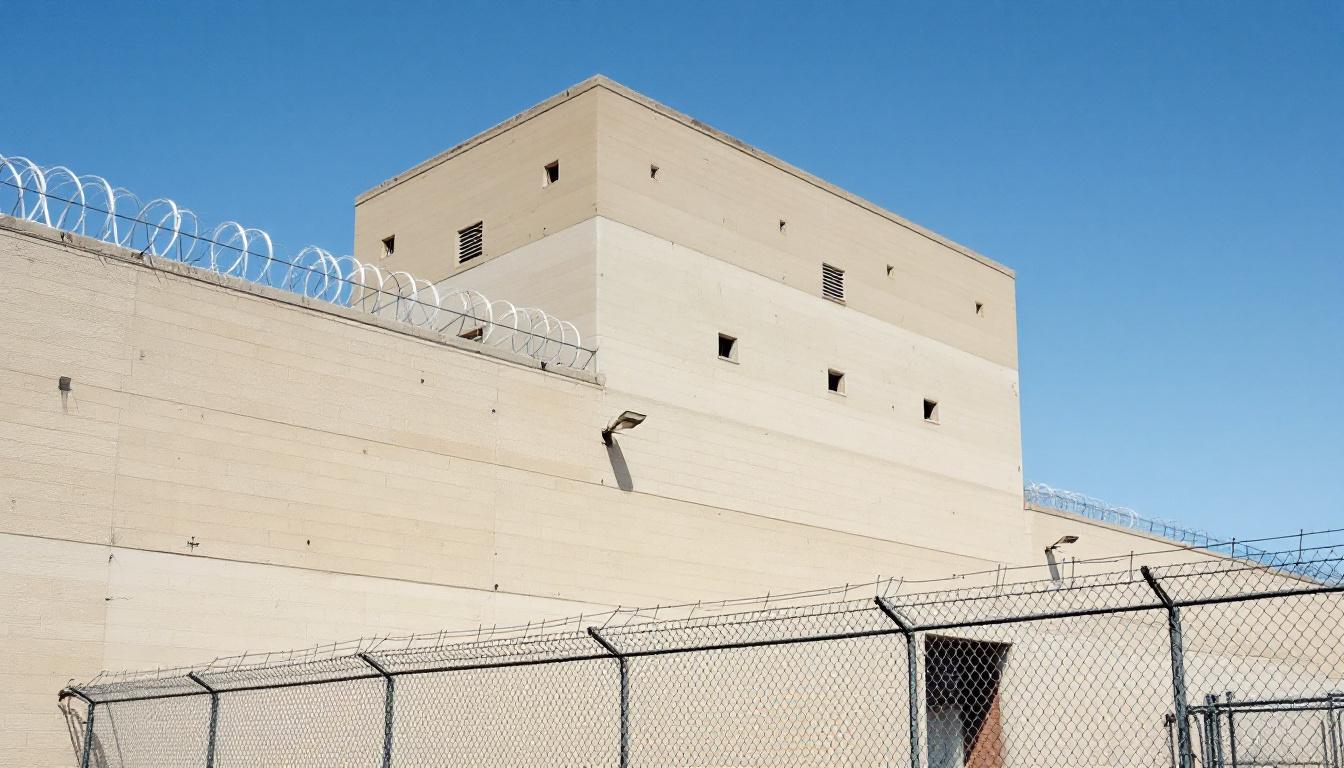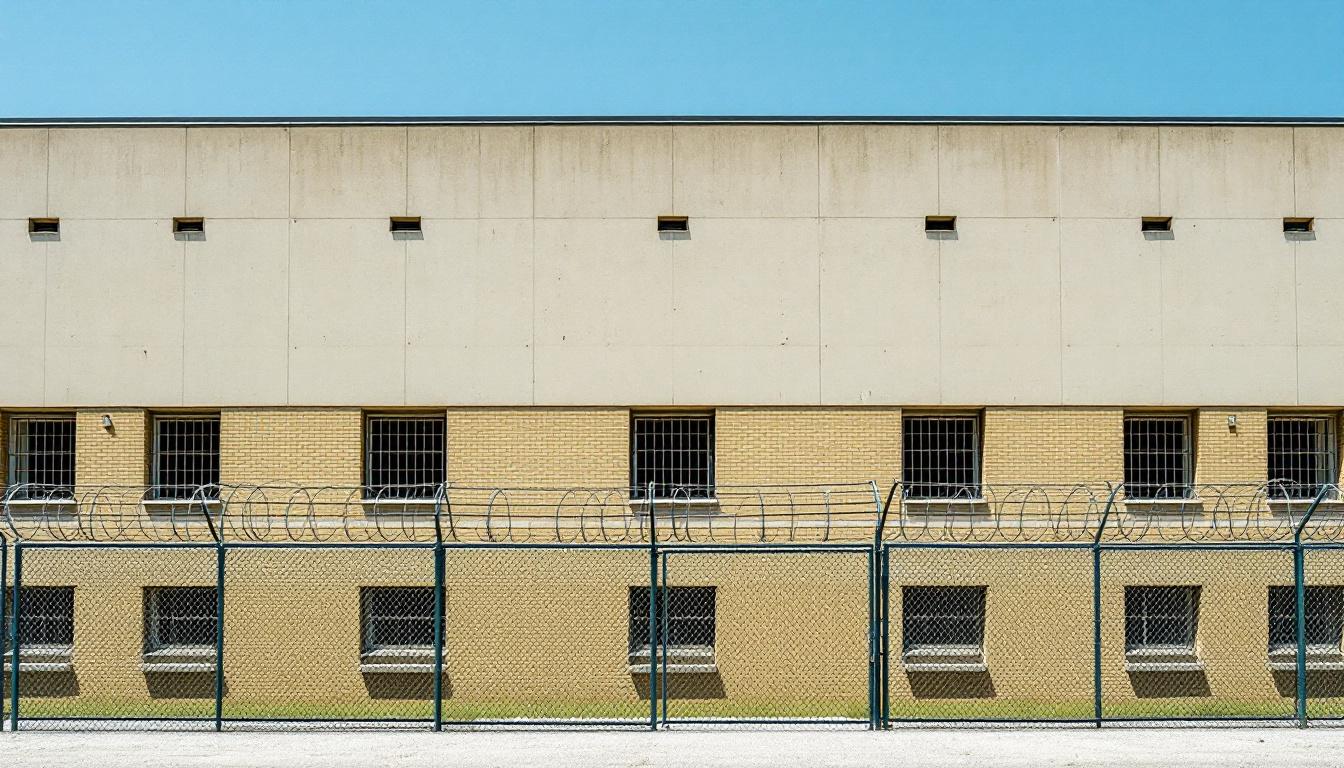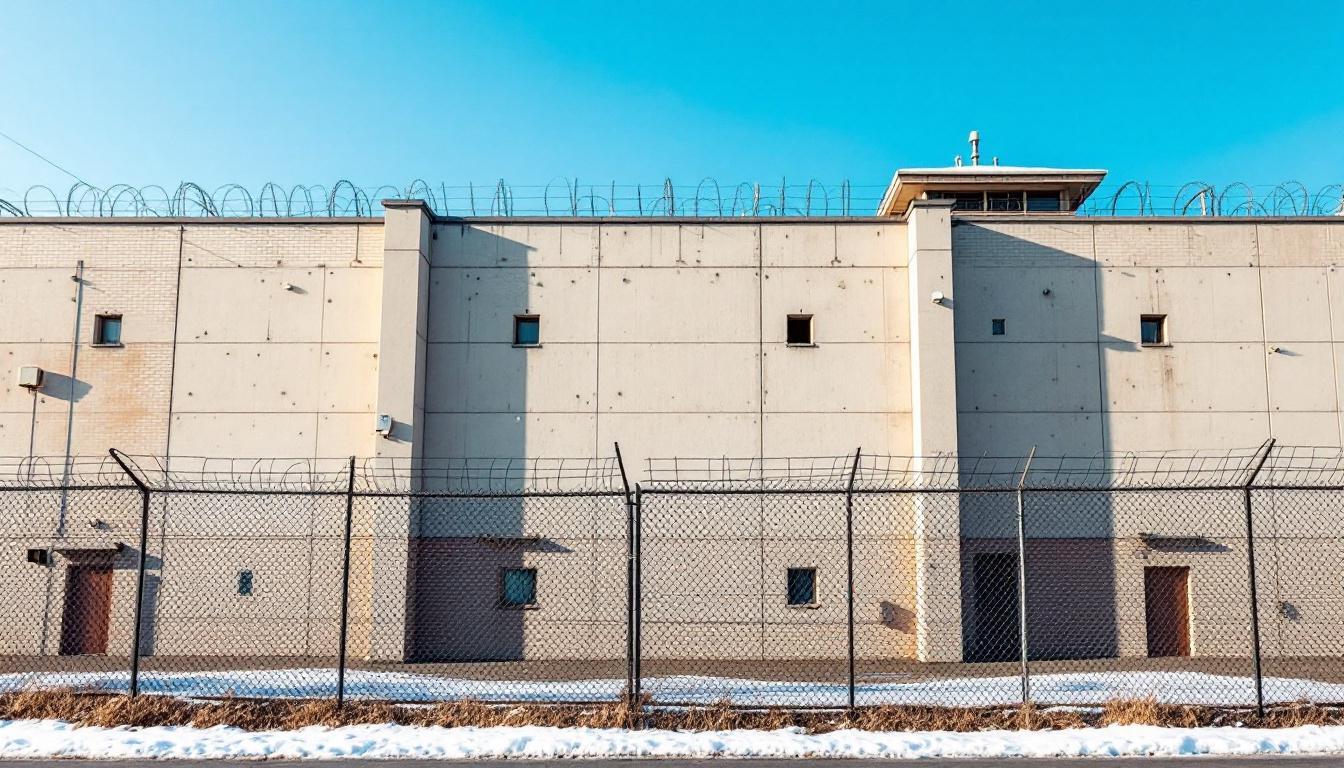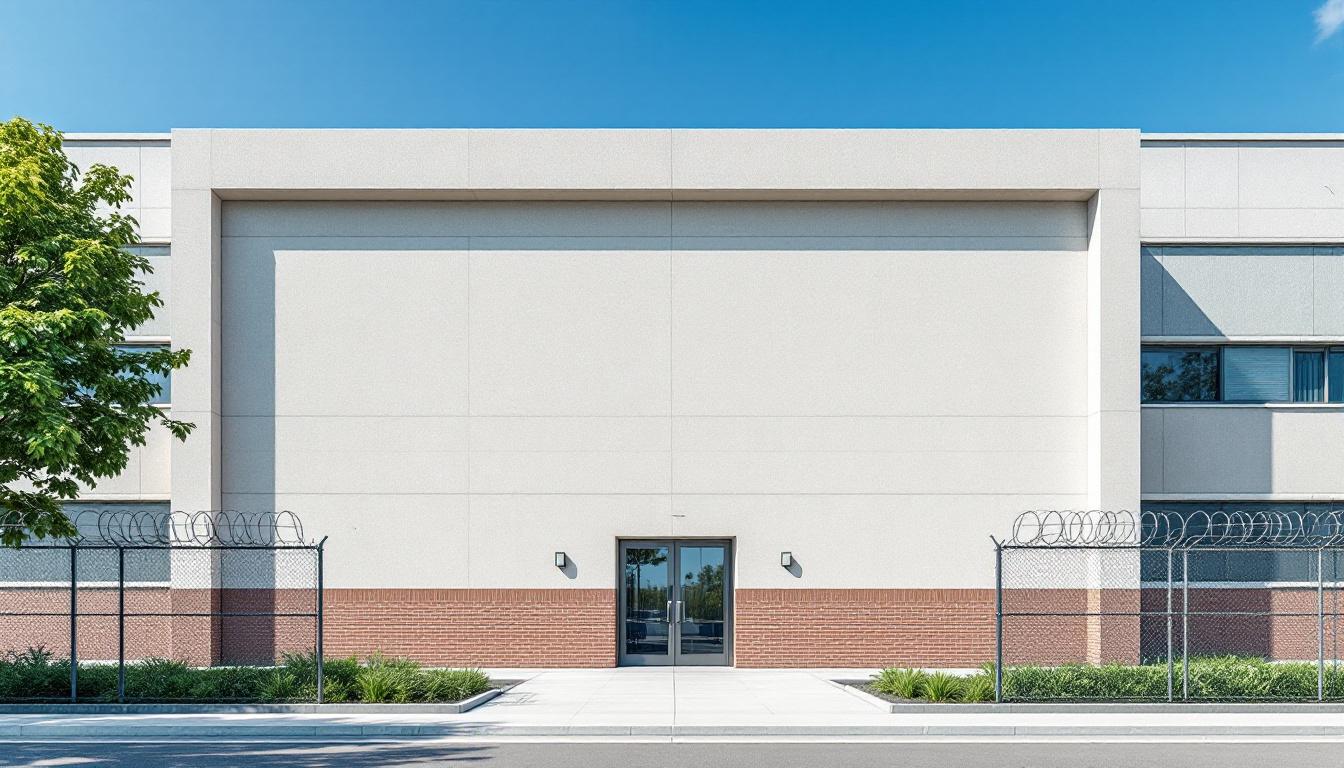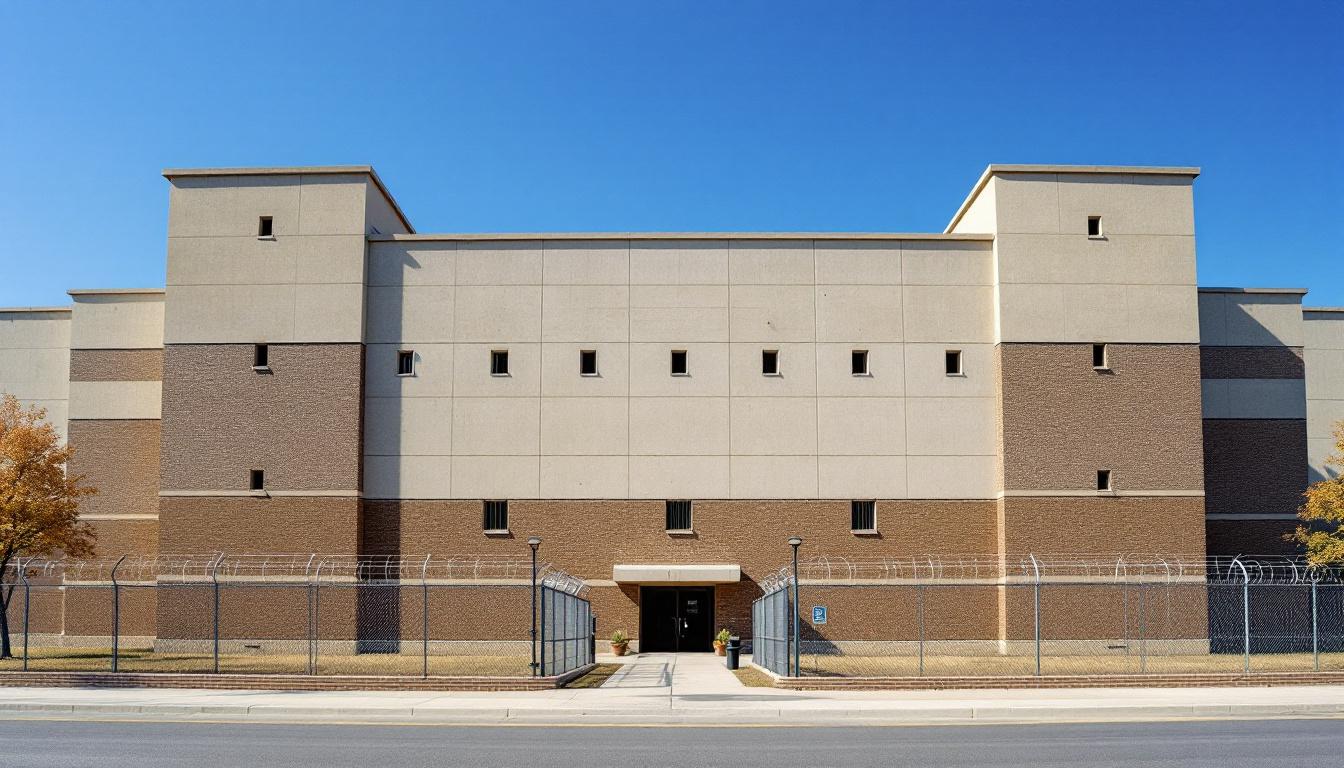
Quick Navigation
How to contact an inmate at FCI McDowell
This comprehensive guide will walk you through how to connect with an inmate at FCI McDowell. Follow the steps below to find an inmate and send letters and photos:
- Search for the inmate using our search tool below
- Create your account or log in to Penmate
- Write your message (up to 6,000 characters)
- Send instantly - inmates receive printed copies daily
Find an Inmate
Search for an inmate to start communicating today
Tip: You can search by first name, last name, or inmate ID number
To contact a person at FCI McDowell start by searching for the person on the official facility website. Perform a search by following these steps:
- Step 1: Enter their first name and last name into the search form and click "Search"
- Step 2: Locate their inmate record
- Step 3: Write down their Inmate ID and any housing information provided
Important! Be sure to enter the person's full name. Nicknames should not be used.
How to Send Messages to Inmates

You can use your phone or computer to send emails, letters, and photos to an inmate. Messages are sent electronically to inmate tablets or kiosks at the facility. If you would like to send a message, start by searching for an inmate at FCI McDowell.
Sending Photos and Postcards

A great way to send love and support to a loved one at FCI McDowell is to send photos and postcards. It only takes a few minutes to send photos from your phone and it makes a huge difference. You can also mail postcards with words of support and inspiration, or design your own postcard for special moments like birthdays and holidays.
Important! Be sure not to send any explicit photos or they may not be approved by the facility. You can also use a photo printing app like Penmate to make sure your photos are printed at the correct size (4x6 or 3x5) and are mailed according to the rules and regulations of FCI McDowell.
Frequently asked questions about FCI McDowell
-
How long does it take to deliver a message?
If you're sending an email message your letter is usually delivered within 24-48 hours. For messages sent via mail you should expect delivery within 3-7 days. All messages will need be approved by FCI McDowell.
-
How much does it cost to send a message to FCI McDowell?
You can send a message free using your phone or mail a message via USPS for the price of a $0.60 stamp and envelope. You can also purchase credits or e-stamps from services starting at $1.99.
-
What services can I use to contact an inmate at FCI McDowell?
Penmate
You can use Penmate to send letters and photos to an inmate from your phone. It's an easy way to stay in touch during your loved one's incarceration. Use the inmate locator to find an inmate's location and contact information, then you can send messages within a few minutes.
Securus messaging
Securus may be another option for communicating with an inmate at FCI McDowell. You can create a friends and family account and purchase credits to send messages. All messages will be reviewed and must be approved by the facility.
JPay
Some county jails and state prisons may support sending messages with JPay. You must register an account with the system, find your loved one, and purchase stamps to send messages. For some locations you can also attach photos.
Smart Jail Mail
You may also check if Smart Jail Mail is available at FCI McDowell. Smart Jail Mail is operated by Smart Communications and has contracted with some state and county jails. After purchasing credits, your messages and photos are sent to the facility, printed out, and then handed out to your loved one.
-
What is the mailing address of FCI McDowell?
Mailing address:
FCI McDowell
101 Federal Dr
Welch, WV 24801
Phone: (304) 436-7300Business hours:
- Monday: Closed
- Tuesday: Closed
- Wednesday: Closed
- Thursday: Closed
- Friday: Closed
- Saturday: 8:00 AM – 3:00 PM
- Sunday: 8:00 AM – 3:00 PM
-
What are the visiting hours at FCI McDowell?
Visiting hours at FCI McDowell vary by housing unit and security level. Generally, visits are scheduled on weekends and holidays, with some facilities offering weekday visits. Contact the facility directly at (304) 436-7300 or check their website for the current visiting schedule. Visits typically last 30-60 minutes and must be scheduled in advance.
-
What items are prohibited when sending mail to FCI McDowell?
Prohibited items typically include: cash, personal checks, stamps, stickers, glitter, glue, tape, staples, paperclips, polaroid photos, musical or blank greeting cards, hardcover books, magazines with staples, and any items containing metal or electronics. Only send letters on plain white paper with blue or black ink. Photos must be printed on regular photo paper (no Polaroids). Always check with FCI McDowell for their specific mail policies.
-
How do I send money to an inmate at FCI McDowell?
You can send money to an inmate at FCI McDowell through several methods: 1) Online using JPay, Access Corrections, or the facility's approved vendor, 2) Money orders mailed directly to the facility with the inmate's name and ID number, 3) Kiosks located in the facility lobby, or 4) Over the phone using a credit or debit card. Fees vary by method, typically ranging from $2.95 to $11.95 per transaction.
-
Can I schedule a video visit with an inmate at FCI McDowell?
Many facilities now offer video visitation as an alternative to in-person visits. At FCI McDowell, video visits may be available through services like Penmate, Securus Video Connect, GTL, or ICSolutions. Video visits typically cost $10-20 for 20-30 minutes and must be scheduled in advance. You'll need a computer or smartphone with a camera and reliable internet connection. Contact the facility for their specific video visitation policies and approved vendors.
-
What identification do I need to visit an inmate at FCI McDowell?
All visitors must present valid government-issued photo identification such as a driver's license, state ID, passport, or military ID. Minors must be accompanied by a parent or legal guardian who can provide the minor's birth certificate. Some facilities require visitors to be on the inmate's approved visitation list, which may require a background check. Contact FCI McDowell for specific ID requirements and visitor approval procedures.
-
How can I find out an inmate's release date?
To find an inmate's release date at FCI McDowell, you can: 1) Use the online inmate search tool if available, 2) Call the facility's records department, 3) Contact the inmate's case manager or counselor, or 4) Have the inmate provide this information during a call or visit. For privacy reasons, some facilities only release this information to immediate family members.
Facility Overview
Official Website

About FCI McDowell
Federal correctional facilities serve as integral components of the justice system, designed to house individuals while providing structured pathways toward successful community reintegration. Located in Welch, Georgia, FCI McDowell operates within this framework as part of the Federal Bureau of Prisons network, contributing to the broader correctional landscape across the state. This GA correctional facility typically emphasizes evidence-based approaches to incarceration, focusing on measurable outcomes that support both public safety and individual transformation during periods of confinement.
The facility's position in rural Georgia reflects the strategic placement of correctional institutions in communities where they can operate effectively while maintaining connections to family networks throughout the region. FCI McDowell generally provides the population services that align with federal standards, which may include educational programming, vocational training opportunities, and substance abuse treatment initiatives. These programs typically aim to address underlying factors that contribute to criminal behavior, preparing individuals for eventual reintegration into their communities through skill development and personal growth opportunities.
Within Georgia's correctional system, federal facilities like FCI McDowell play a distinct role by housing individuals convicted of federal crimes while working toward rehabilitation goals that extend beyond mere incarceration. The facility's operations in Welch contribute to the local economy while serving the broader mission of public safety through structured programming and supervision. Family members and community stakeholders often find that understanding these institutional approaches helps them better support their loved ones' journey through the correctional process and eventual transition back to community life.
Programs & Services
Through comprehensive programming designed to address individual needs, support services at FCI McDowell focus on building essential life skills and fostering personal growth. The facility typically emphasizes a holistic approach that recognizes rehabilitation as a multifaceted process. Programs often include structured activities that help the population develop practical abilities while addressing underlying challenges that may have contributed to their circumstances.
Educational and vocational programs form the foundation of skill-building opportunities available to participants. GED preparation courses may supply the academic foundation needed for those seeking to complete their high school education. Furthermore, education programs often include basic literacy instruction and continuing education options. Vocational training typically provides hands-on experience in trades and technical skills that can translate to employment opportunities upon release.
Faith-based services and chaplaincy programs offer spiritual guidance and community connection for those seeking religious support. Mentoring programs may pair participants with experienced individuals who provide encouragement and practical advice throughout the rehabilitation process. Furthermore, arts and crafts activities typically serve as therapeutic outlets that promote creativity and stress relief. These support services often include group discussions and individual counseling opportunities that help the population develop coping strategies and maintain connections with family members during their time at the facility.
Daily Life & Visitation
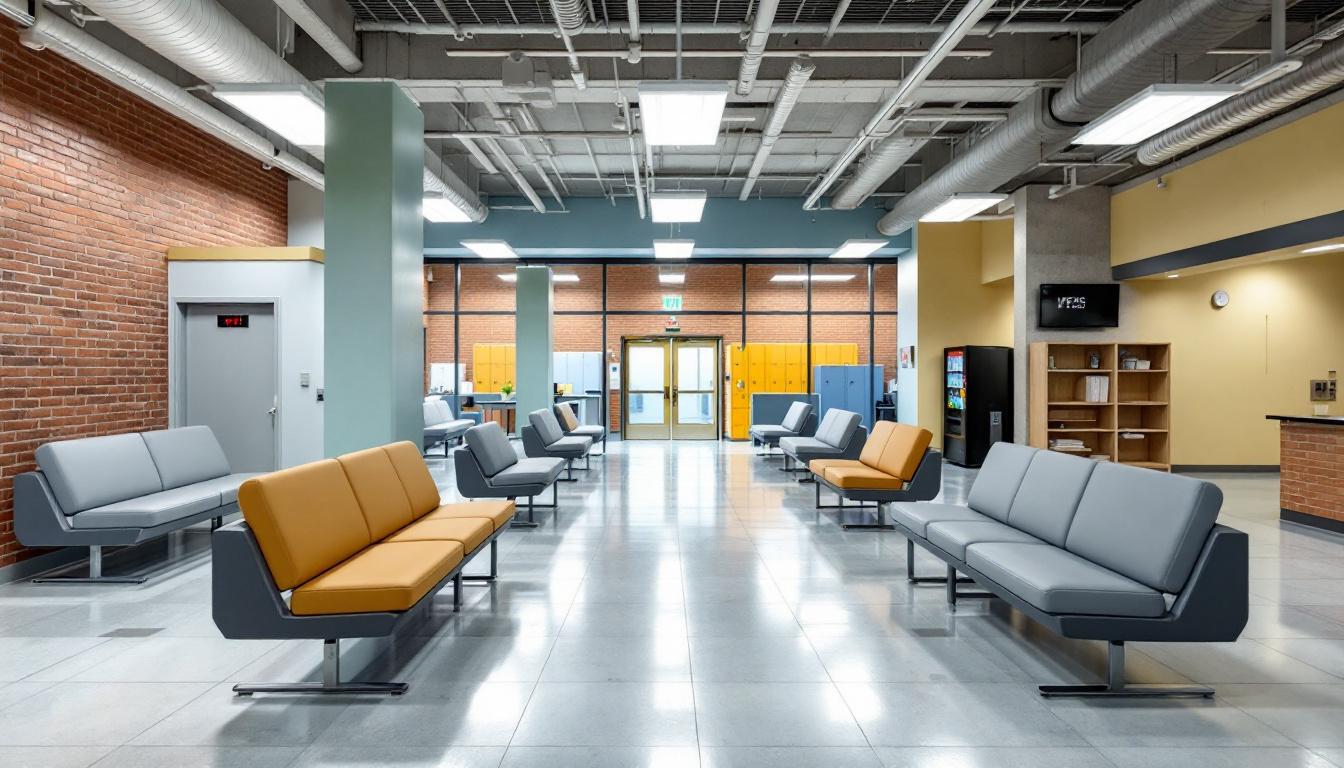
Structured schedules and clear organizational systems shape every aspect of life for the population at FCI McDowell. Today's routine typically begins with early morning counts, followed by consistently scheduled meals, work assignments, and programming activities. The facility operates on a framework that balances security requirements with opportunities for personal development and rehabilitation.
Furthermore, housing units generally accommodate the population in dormitory-style or cell-based arrangements, depending on security classification and available space. Living areas typically include basic furnishings and storage for approved personal property. Although space may be limited, residents usually have access to common areas within their housing units. Meals are generally served in designated dining areas at scheduled times, with the population rotating through in organized groups to maintain order and security.
The facility typically supplies various recreational and educational programs throughout the week. Work assignments often include maintenance, food service, and administrative support roles that help maintain facility operations. Although visitation schedules and communication options are subject to security protocols, the population generally has opportunities to maintain contact with family members through scheduled visits, phone calls, and correspondence. Programming activities may include educational classes, vocational training, and recreational opportunities that provide structure and support rehabilitation goals.
Ready to Connect?
Start communicating with your loved one today
Search for an Inmate
